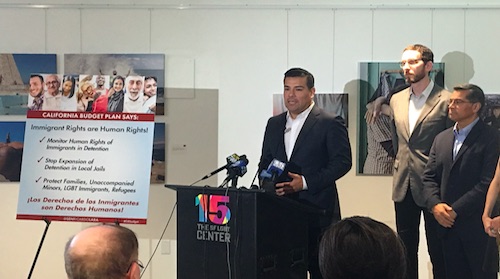Magazine, The Immigrant Experience
The upcoming mid-term elections — which will shape politics at local, state, and national levels — come as voters are bombarded with disinformation that sows distrust in the political process, promotes false narratives, and targets ethnic communities in their own language.
There is little push-back to challenge the daily barrage of fake news — be it the “big lie” about stolen elections, distortions about immigrants, or messages that target ethnic communities in their own language. An expert panel by EMS (Ethnic Media Services) explored a variety of angles regarding disinformation and how it is likely to affect these elections and the future of democracy in the United States.
Mekela Panditharatne, Counsel, Brennan Center’s Democracy Program opened the discussion by emphasizing that the most troubling aspect of election misinformation and disinformation is false and misleading information about the voting process itself end election administration. This has been a long-standing problem in American elections where unfortunately bad actors try to trick people out of voting by disseminating inaccurate misleading information about how to vote and where to vote. This is unfortunate as voters of color or voters who speak a different language other than English are often the target of these kinds of nefarious efforts. Misinformation can thrive for a number of reasons. Still, one catalyst for election misinformation is made when the demand for accurate information in the electorate is greater than the supply of information. This is dangerous because it creates information gaps that leave room for misinformation to sip in and fill the voids. Another consequence is the recent influx of restrictive laws that have been passed since the “big lie” perpetuated by former President Trump since the 2020 elections. These restrictive laws not only restrict access to the vote but also damage our democracy in other ways by augmenting the misinformation risk, and also have the potential to bolster false doubts about our election integrity thus creating opportunities for people to misstate requirements or even invent false limits on voting. This creates a disinformation feedback loop that is filled with misinformation and creates added risk for misinformation. We must keep in mind that most of these laws target Latino and black voters. Research shows that most newly registered voters are likely to be Latino and are at risk and this is particularly true in Spanish language misinformation.
To solve this problem, election officials in the vast majority of cases should be the best sources of information about elections. Voters need to be informed about the contact for their state, local, or county election officers.
Tamoa Calzadilla, Managing Editor, Fatchequeado.com discussed the efforts to combat misinformation and disinformation in the Latino community. How to counter this disinformation, especially since the last election, “We are seeing a lot of disinformation similar to the past election,”, particularly among the Republican candidates. One particular disinformation is regarding the IRS which is being used in a narrative by radio stations in Florida. Conservative commentators are using the IRS as a weapon against the middle and working classes. Comparisons of Democratic candidates are being made with dictators like Nicolas Maduro of Venezuela and other socialists to state similarities between them. Countries like Cuba, Venezuela, and Nicaragua are the basis for this type of disinformation.
On social media, immigration is a hot misinformation button. Asylum seekers are all called ‘illegal’ or ‘undocumented’ which is false. Racist narratives also used by Fox News host Tucker Carlson are pretty rampant and are not unusual as they have always characterized immigrants as wanting to replace white people. It has unfortunately become an electoral narrative of disinformation.
Rong Xiaoqing, Reporter, Sing Tao Daily introduced the most popular social media platform used by the Chinese called WeChat where discussions take place in private groups and make it very difficult to trace any misinformation. While the Chinese government supported covid vaccines to benefit its agenda it allows rampant misinformation about the US when it favors its agenda. It is in its interests to portray the US Democratic process as collapsing. Fear of a ban on WeChat has driven users onto other platforms such as Telegram where there is no boundary in terms of misinformation. In a short space of time, growth on Telegram has gone from a few thousand to over 100,000 participants. The misinformation in the Chinese language is similar to those we see in English misinformation such as election fraud, monkeypox, etc. However, some are written to cater to Chinese immigrants. The most poignant misinformation here is one that tries to tie the Democratic Party to the Chinese Communist Party.
Vanessa Cardenas, Deputy Director, of America’s Voice shared the differences between misinformation with the intention to harm and when someone unintentionally spreads misinformation, and there is also mal-information which is disseminated with the intention to harm. Even though misinformation has always existed, social media today has however created an opportunity to have this spread more rapidly. Immigration has been a constant theme in the right-wing media which has now made an issue to rally voters, particularly on the right. They have created an echo chamber to portray immigrants negatively, which politically, Republican candidates use to rally their base. All of this is a political tactic and not a solution. It is all about giving red meat to the base. This needs to be countered as it is damaging to our democratic process and caution needs to be paid as we counter by not inadvertently spreading this misinformation in reporting as well through our ethnic media.
Jong Won Lee concluded the discussion by sharing that similar challenges exist in the Korean community and he stressed paying attention to the misinformation.










